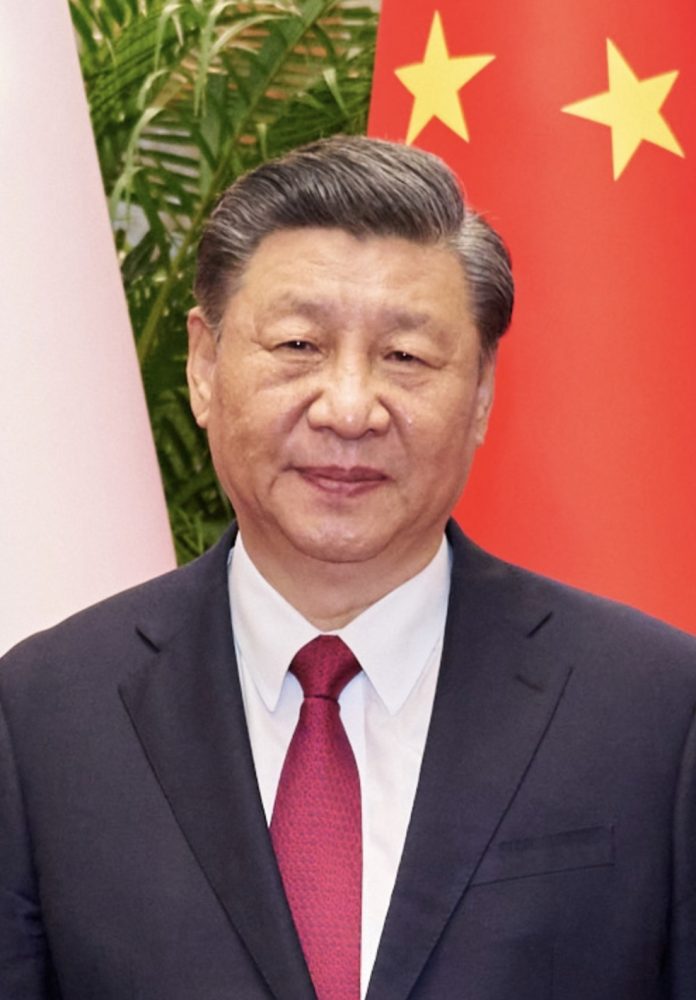
By Prof. Dr. Marc De Vos, a Visiting fellow at Belgian think tank Itinera
China is unique. No country has ever managed to make as many people as much richer in such a short time. In 40 years time, an impoverished giant has been transformed into a world power. China has the world’s second largest economy and second largest defence budget, with a middle class of more than 700 million people. It is a global leader in modern technology, the largest trading partner for more than 120 countries and the centrepiece of the great Asian revival.
This was supposed to be China’s century. This was even supposed to be the decade when the Chinese economy would surpass that of the United States in size. However, suddenly, there is wear and tear on the Chinese growth machine: deflation, massive youth unemployment, currency depreciation, declining exports, a looming debt crisis in the property market, all translated into stubbornly low growth rates. China is experiencing its version of the well-known middle-income trap: the trial-and-error observation that it is difficult, once poverty has been exchanged for average wealth, to advance further into a developed high-income economy.
China is trapped, because it has reached the limits of its growth model. Some 40 per cent of its economy still consists of capital spending – real estate, public works, business infrastructure – typical spending to get out of poverty. Not only is that growth over, there is already a great deal of excess capacity hanging like a millstone around the necks of developers and local governments. China’s total debt ratio is almost 300% of the entire economy, which is excessive for a middle-income country and evidence of a growth model that has outrun itself.
China faces the risk of two major economic/financial problems coming together … and having them fuel and be amplified by financial instability:
First, insufficient domestic growth drivers in the face of external headwinds; and
Second, long-standing pockets of excessive debt and… pic.twitter.com/1ldaVB4fRI— Mohamed A. El-Erian (@elerianm) August 18, 2023
A godchild of globalisation that is on the wane
Besides internal reconstruction, external exports have been the second driver of China’s catching up process. The combination of cheap labour, efficient governments and gigantic scale, enhanced by unabashed stealing and copying of Western know-how, made China the ‘factory of the world’. No more. China was a godchild of globalisation that is on the wane. Investing and manufacturing in China is now a geopolitical risk that many countries and companies want to restrict. The country is no longer cheap either.
The end of globalisation is not in the least a result of China’s own political direction under President Xi. When one is shouting from the rooftops that the Chinese model of society is superior and that the West is doomed to decline, while breeding Chinese state-owned enterprises in order to dominate industrial and technological sectors globally and blackmailing trading partners as soon as they criticise the Chinese regime, one should not be surprised that Western countries prefer not to finance this.
On the contrary, one could expect what America and Europe are doing more and more: decoupling from China, investing, producing or buying elsewhere.
CHINA'S ECONOMY
– Exports fell by 14.5% year-on-year in July
– Currently in deflation
– Youth unemployment at record high
– Credit growth has fallen to lowest since 2009
– One of biggest property developers on verge of default
– Yuan close to 16-year low against Dollar pic.twitter.com/ZdxJGZUVHS
— The Spectator Index (@spectatorindex) August 21, 2023
The secret of China’s growth miracle was a clever separation of politics and economics. Centrally planned communism was based on bamboo capitalism in its execution: the mix of enterprise, hard work and clever commerce that characterised pre-communist China over the centuries. Exactly against that, Xi has unleashed a fight: first against corruption or ostentatious wealth – the distinction is often political arbitrariness – then against superstar corporations in favour of state-owned enterprises, and finally, against everyone, in a brutal manner, during the pandemic.
How does China think to outlaw debt addiction, suppress markets, fight inequality, muzzle businesses while continuing to count on entrepreneurs, consumers and markets to take risks, invest and innovate? The Chinese political model stands in the way of Chinese economic growth. That is the Chinese dilemma.
'Economists now believe China is entering an era of much slower growth, made worse by unfavorable demographics and a widening divide with the U.S. and its allies, which is jeopardizing foreign investment and trade.' https://t.co/MKdw4Y1PYT ht @SoberLook pic.twitter.com/WxmpUqUXh8
— Jesse Felder (@jessefelder) August 22, 2023
Originally published in Dutch by Trends.
Disclaimer: www.BrusselsReport.eu will under no circumstance be held legally responsible or liable for the content of any article appearing on the website, as only the author of an article is legally responsible for that, also in accordance with the terms of use.












